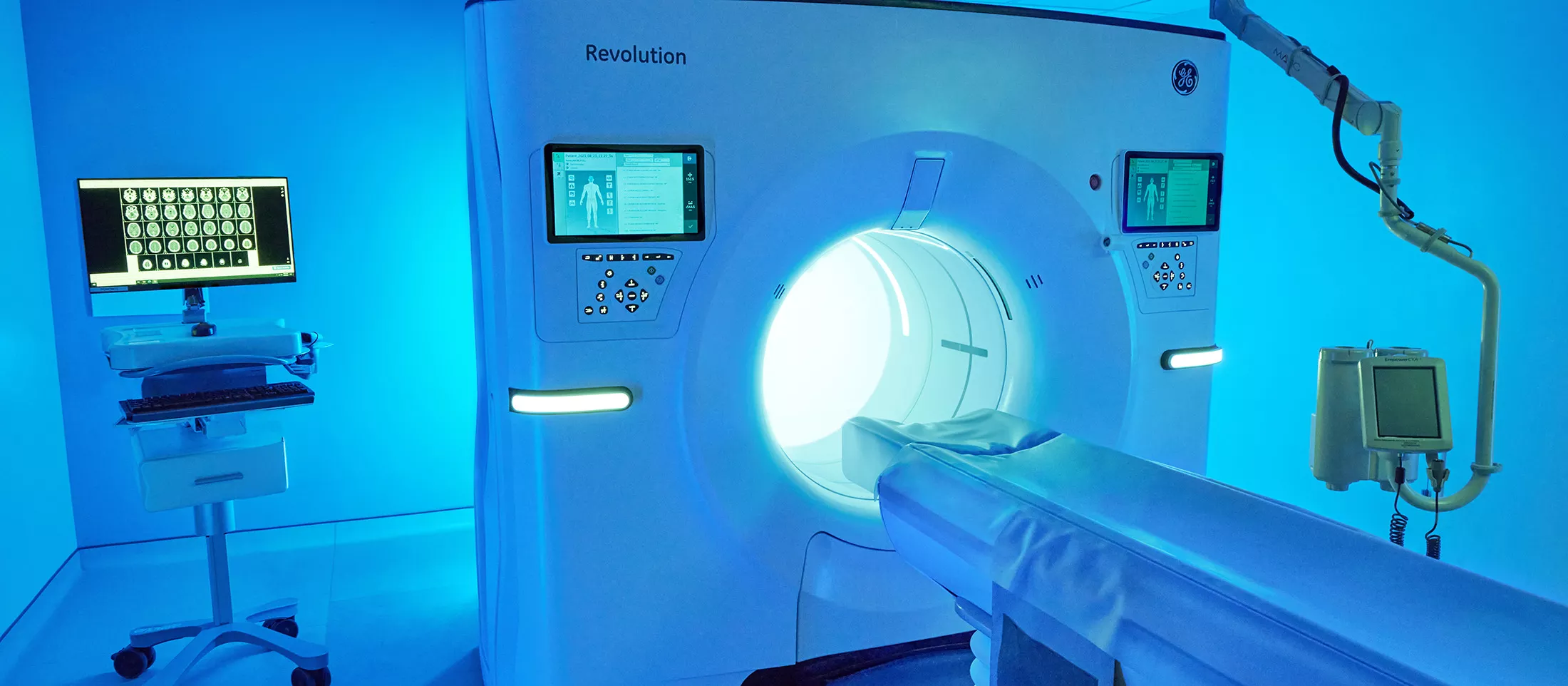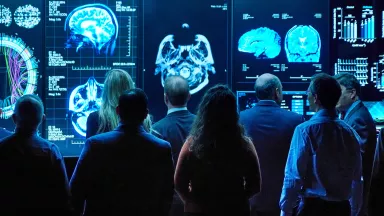Our Approach to Skull/Cranial Base Conditions

The Montefiore Einstein Comprehensive Skull/Cranial Base Center is an international referral site for the most complex cases and one of the highest-volume centers of its kind in New York. Our widely recognized, fellowship-trained surgeons and physicians provide advanced multidisciplinary care using the latest technology to expand the possibilities of treatment for skull/cranial base tumors and other conditions.
Deep-seated tumors that until recently were considered inoperable are now being removed while preserving normal function and optimizing our patients’ quality of life. We’re ranked in the top one percent of all hospitals in the nation for neurology and neurosurgery and are among the highest-performing centers in the nation for neurology and neurosurgery and ranked in the top one percent of all U.S. hospitals for cancer care and endocrinology, according to U.S. News & World Report.
Our team of world-renowned experts comprises specialists in neuro-oncology, neurology, neurosurgery, otorhinolaryngology, neuro-otology, radiation oncology, neuro-ophthalmology, endocrinology, diagnostic and interventional neuro-radiology, plastic surgery, medical oncology, critical care, head and neck surgery, neuroimmunology and stem cell and systems biology and collaborates through consensus conferences and precision medicine initiatives to optimize functional recovery.
We treat the full spectrum of skull/cranial base conditions in adults and children, including vascular, congenital, traumatic (i.e., cerebrospinal fluid leaks) and inflammatory conditions, as well as a wide range of benign and malignant brain and head and neck tumors involving the base of the skull, such as meningiomas, pituitary adenomas, vestibular schwannomas, acoustic neuromas, Rathke’s cleft cysts and sinonasal cancers.

Advanced Treatment
Our center is at the forefront of the evaluation and treatment of some of the most complex tumors and other skull base conditions, employing the latest approaches and state-of-the-art technologies. We provide access to the most advanced diagnostics and treatments including genetic testing and molecular profiling for further personalization of treatments and sophisticated technologies for visualization of tumors.
Should surgery be an option, our neurological and neurosurgical team uses high-powered illumination and enhanced navigation for skull base tumors (3-D ultrasound, fiber pathway tracking, and endoscopic assistance), 5-aminolevulinic acid (5-ALA) fluorescence-guided surgery, real-time electrophysiologic monitoring of vital brain structures and stereotactic image guidance to help navigate the brain regions during surgery. Our center also routinely conducts standard and advanced techniques for malignant brain tumors, such as awake craniotomies and intraoperative imaging.
The Montefiore Einstein Comprehensive Skull/Cranial Base Center is currently one of only a few of its kind in the nation conducting complex transorbital (TONES) approaches for incision-less brain tumor resections through the eye. Our center’s work in expanded endonasal and minimally invasive combined surgical approaches has been highlighted in two textbooks published by Cambridge University Press.
Unmatched Surgical Expertise
Our renowned experts utilize the most modern and advanced surgical approaches available today, from open to minimally invasive and endoscopic surgery.
A particular area of excellence is the use of minimally invasive endoscopic techniques or through small incisions and keyhole surgery, whenever possible, to minimize postoperative pain and reduce the hospital stay for patients who would otherwise require large open cranial procedures.
We provide a complete spectrum of the latest approaches and treatments both inside and outside of the operating room, addressing the patient’s needs first and creating treatment plans designed to maximize our patients’ care, returning them to optimal functioning and quality of life. Some of the nonsurgical and surgical treatments we provide include the following:
- Proton beam and other radiotherapies
- Immunotherapy
- Stem cell and regenerative therapies
- Bioengineering
- Corticography (brain mapping)
- Combined surgeries
- Endoscopic surgery
- Minimally invasive surgery
- Open surgery
- Transnasal surgery
- Transoral surgery

Your Comprehensive Skull/Cranial Base Center Team
Our multidisciplinary team of elite experts is at the forefront of care for skull/cranial base conditions and the development of therapies. From prevention to treatment options, we will propose a highly individualized treatment plan that fits your needs and lifestyle to deliver positive health outcomes.
About Skull/Cranial Base Tumors
A tumor is a mass of abnormal cells that either form into a new growth or were present as a mass at birth (congenital). Tumors can be noncancerous (benign) or cancerous (malignant) and occur when something goes wrong with genes that regulate cell growth, allowing cells to grow and divide out of control. Tumors can form anywhere in the body. Brain and spinal cord tumors form in the tissue inside the brain or spinal cord, which make up the central nervous system (CNS). Cranial/Skull base tumors originate at the base of the skull and top of the spine. These are generally more difficult to access and treat due to the location, and require an experienced, multi-disciplinary team to address.






